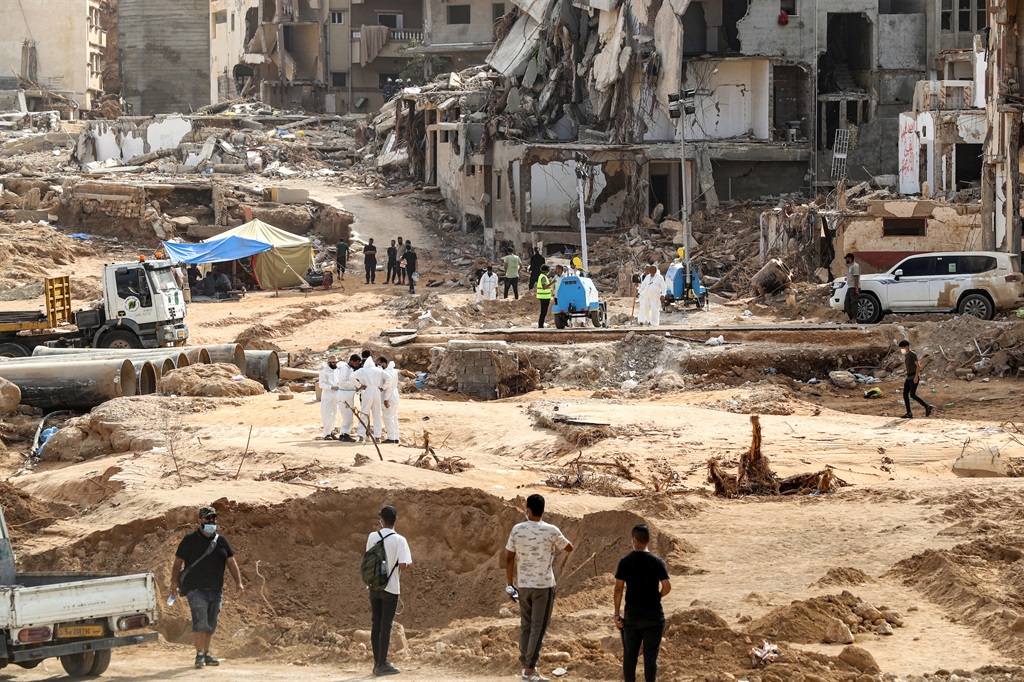Reconstruction in Libya gets political, UN Security Council hears, and Wagner looms large
After the Derna disaster, the worst in the history of the north African state, the two opposing governments in Libya are attempting to gain political clout in the rehabilitation of the nation. The UN Security Council has heard of continued division within the leadership of Libya over the reconstruction of Derna and its surrounds, and China blames NATO for the deep-rooted crisis in Libya. The US and China have both expressed their support for the road to democracy in Libya, while the Wagner Group, a Russian paramilitary outfit, has stretched to most parts of the Sahel region. The Hanns Seidel Foundation has produced stories through the Africa Desk and the opinions that may be published.

Published : 2 years ago by Lenin Ndebele in Politics
• The UN Security Council has heard of continued division within the leadership of Libya over the reconstruction of Derna and its surrounds.
• The US says the Wagner Group stands in the way of transition to democracy in Libya.
• China blames NATO for the deep-rooted crisis in Libya.
After the Derna disaster, the worst in the history of the north African state, the two opposing governments in Libya are attempting to gain political clout in the rehabilitation of the nation.
This at a time when both sides agreed to work towards civilian rule that would result in democracy.
Addressing the UN Security Council on Tuesday, Abdoulaye Bathily, the special representative of the secretary-general for Libya to the UN, said this competition was counterproductive.
"I am deeply concerned about the continued division of the leadership of Libya over the reconstruction of Derna and its surrounding affected areas," he added.
Bathily said each of the two governments running the country was fighting to control the narrative.
"Leaders continue, so far, to display competition and rivalries as to which entity will exert exclusive authority over the reconstruction efforts," he added.
Libya is run by two different governments - a government of National Unity established in Tripoli in 2021 with Abdul Hamid Dbeibeh as the internationally recognised prime minister.
On the other side of the country, there is the Eastern Parliament under Fathi Bashagha's Government of National Stability.
READ | A storm caused devastation in Libya, but politics may be its biggest problem in the aftermath
The disaster exposed the extent of dysfunction in Libya, particularly public services and social security, all of which are a result of political instability.
"The Derna disaster has revealed severe governance deficits through several issues, such as the lack of maintenance of the dam systems, the management of resources, and the lack of an effective mechanism for disaster management and prevention.
"On top of these issues, the absence of unified political decision-making at the national level made matters more challenging.
"Had these governance issues been resolved at national level, they would have mitigated the impact of the tragedy," Bathily said.
The 6+6 committee representing both governments responsible for drafting electoral laws since July has covered good ground.
The committee is due to unify the two governments and hold elections to determine a permanent leader for the nation.
Both the US and China, geopolitical rivals, said they supported Libya's road to democracy.
Addressing the Security Council, US Ambassador Linda Thomas-Greenfield said they were firmly behind a stakeholder solution to Libya's crisis that could be traced back to the fall of Muammar Gaddafi.
But the Americans worry progress towards democracy could be undermined by the likes of the Russian paramilitary outfit, the Wagner Group, which has stretched to most parts of the Sahel region.
"But we remain deeply concerned by the destabilising activities of the transnational criminal organisation Wagner Group, both in Libya and throughout the region.
"Wagner has made no secret of its disregard for Libya's sovereignty and territorial integrity or its ambition to deepen its foothold in the region, Thomas-Greenfield told the Security Council.
ALSO READ | Wagner Group in Africa: Resource plunder, human rights abuses, and state capture
China, on a rare occasion, agreed with the US on what should be done in Libya.
"China hopes that all parties will consolidate the results of the dialogue, resolve conflicts and narrow differences, and move the political process forward to achieve progress in order to create conditions for the general election.
"It should be pointed out that only a Libyan-led and Libyan-owned process is conducive to genuine long-term stability in Libya," said Dai Bing, China's deputy ambassador to the UN.
While the US explicitly lays the blame for instability in Libya on the Wagner Group, China said it was all on NATO.
"NATO's military intervention has resulted in a decade-long turmoil in Libya, with state institutions torn apart and massive destruction done to infrastructure, which to this day has not been repaired.
"It bears inescapable responsibility for the huge losses and casualties caused by the flood," added Dai.
The News24 Africa Desk is supported by the Hanns Seidel Foundation. The stories produced through the Africa Desk and the opinions and statements that may be contained herein do not reflect those of the Hanns Seidel Foundation.
